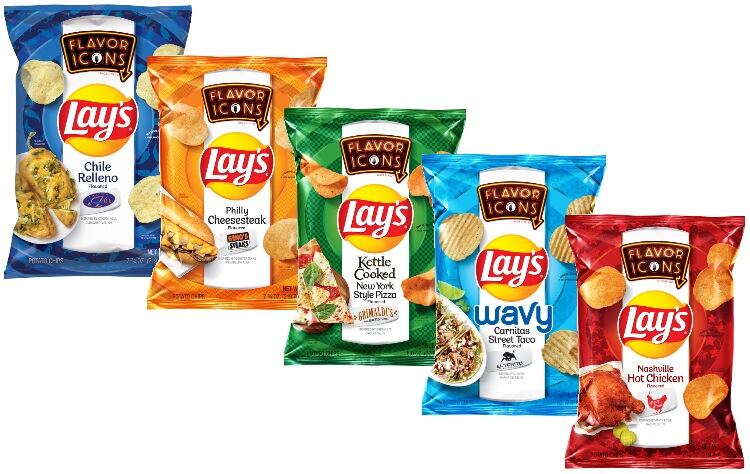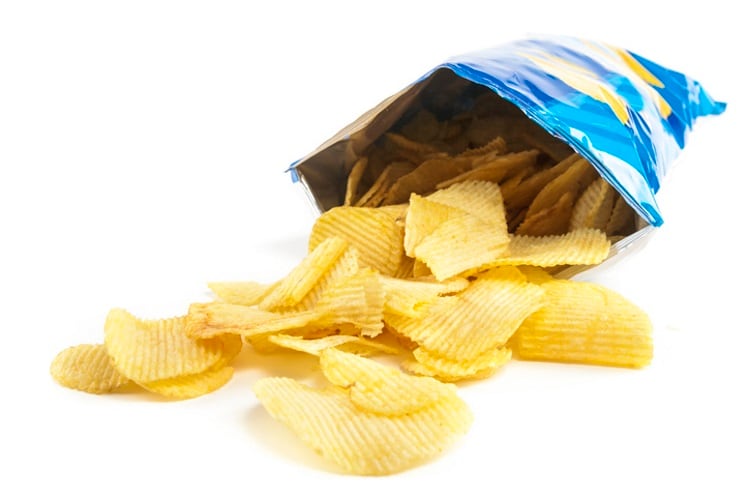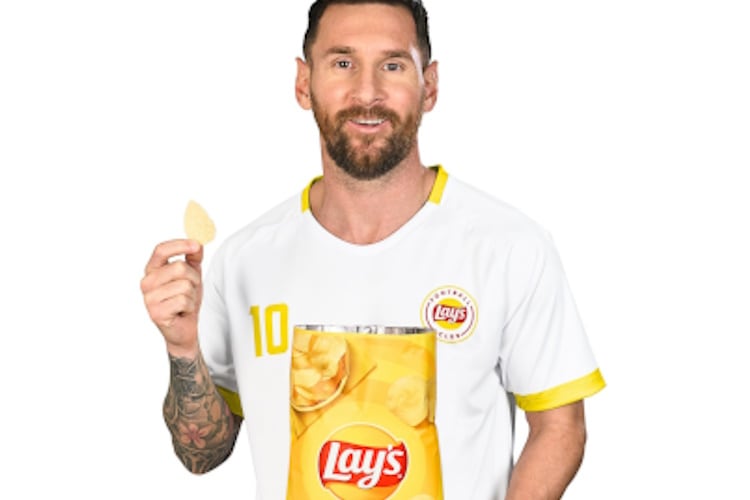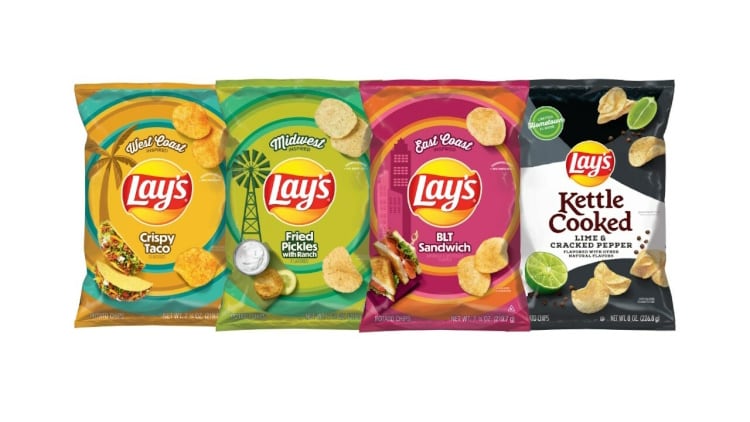The PepsiCo-owned brand has established a solid foothold in the Indian market, adapting its flavors to suit local tastes – like Magic Masala – while giving consumers the chance to explore international options like Spanish Tomato Tango and American Style Cream & Onions. Moreover, Lay’s often engages in promotional activities and collaborations with popular Indian celebrities to further boost its brand visibility and appeal.
In FY2023, the brand commanded the biggest chunk of the potato chip market in India, with 30%, followed by 10% each for the next two biggest sellers, Bingo and Balaji, according to Statista.
Getting ahead of competitors

A PepsiCo India spokesperson told The Economic Times that trials with the sunflower oil/palmolein blend in certain products will position the company as “one of the few players in the food industry in India to do so”.
Numerous Indian packaged food brands – from salty snacks and biscuits and bread – use palm oil, as its price is far lower than sunflower or soybean oil.
However, it does come at a cost to both the consumer and the environment.
Palm oil is high in saturated fats, which in excess, can contribute to cardiovascular issues. On the plus side, it contains vitamin E tocotrienols and carotenoids, which have antioxidant properties. Moreover, its free of trans fats, unlike some other vegetable oils.
However, the debate over palm oil’s environmental and social implications far outweigh its nutritional profile.
The production of palm oil has been linked to deforestation, habitat destruction and displacement of indigenous communities in some regions where it's grown.
Palm oil questioned

In fact, PepsiCo has recently been targeted by The Bureau of Investigative Journalism (TBIJ) for its alleged link to Amazon deforestation and the invasion of indigenous lands in Peru.
An investigation with the support of the Pulitzer Center's Rainforest Investigations Network reveals the Cheetos and Doritos maker sources palm oil processed at a Mexican refinery that purportedly gets the raw material from deforested territory claimed by the Shipibo-Konibo people in Ucayali, eastern Peru. The report claims the refinery buys the palm oil from Sol de Palma, a Peruvian consortium that allegedly shares storage facilities with Ocho Sur, a US-funded business that has been accused of environmental and human rights violations.
According to the report – which was published last month – satellite analyses by the Center for Climate Crime Analysis (CCCA) and TBIJ shows ‘clear deforestation’ on Ocho Sur’s property over the past three years.
PepsiCo is one of the largest global buyers of palm oil in the consumer products industry and CCCA’s analysis notes that at least 15 of its products contain Peruvian palm oil refined in Mexico, including Doritos, Cheetos and Gatorade.
On its website, PepsiCo admits to using ‘palm oil in Asia and other markets where it is readily available and relatively close to the production base.’
In the US, however, ‘very little palm oil is used because we rely on other edible oil crops that are widely grown in North America’. In fact, it uses the heart-healthier sunflower, corn and canola oil to produce Lay’s in the US, leaving the Indian unit open to criticism for its use of cheaper, ‘unhealthy’ and less sustainable ingredients in packaged foods sold in that country.
A healthier chip

Hence, the Indian business unit’s move towards sunflower oil and palmolein.
While palmolein’s environmental impact is as contentious as those of palm oil in general – including deforestation, habitat loss and greenhouse gas emissions – there are some potential benefits in terms of land efficiency and carbon sequestration.
Healthwise, it’s as high in saturated fats as palm oil. But being a liquid form, it’s easier to use in processes like frying and baking. Its high smoke point also means it can be heated to relatively high temperatures without breaking down and producing harmful components.
In response to the TBIJ report, PepsiCo said, “We take all inquiries like this seriously and have initiated an investigation through our established grievance process to assess whether any action on our part is required.”
According to TBIJ, the snack producer also stressed that Ocho Sur is not a direct supplier and said it has engaged its direct suppliers to better understand their ties to Ocho Sur and ensure they take corrective actions if needed.
PepsiCo pledged to make 100% of its palm oil supply deforestation-free by the end of 2022 and said its 2021 purchases of palm oil represented less than 1% of global supply.
‘In 2021, our global purchase of palm oil was nearly 440,000 metric tons (MT), of which palm kernel oil comprised nearly 3,700 MT, and sourced nearly 8,200 MT Independent Smallholder (ISH) credits to recognize the efforts of smallholders. Our top suppliers were Oleofinos, Wilmar, Cargill and Willowton. The top three countries from which PepsiCo sourced palm oil were Indonesia, Malaysia, and Colombia.’
PepsiCo India is also working to reduce the salt content in its snacks to below 1.3mg of sodium per calorie by 2025.





